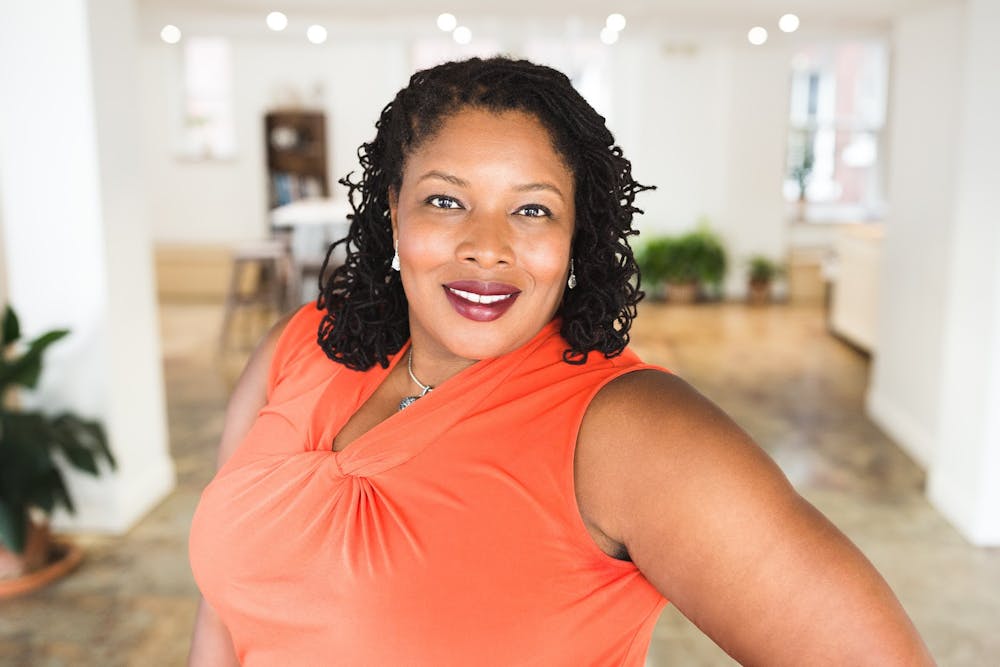“All science is either physics or stamp collecting.”
According to Jami Valentin Miller, this quote — attributed to Ernest Rutherford, the father of nuclear physics — encapsulates the elitist mindset of many physicists. In 2006, Miller became the first Black woman to receive her PhD in physics at Hopkins. The fact that it took so long for Hopkins to grant a PhD in physics to a Black woman, she said, reflects the elitism that permeates the field.
“When you add into this the different sexual biases that many people have... it’s always going to be a challenge,” Miller said in an interview with The News-Letter. “That level of ego when it’s applied to an entire field of science can be tough for many people to break into.”
Miller came to Hopkins after completing her master’s degree at Brown University, compelled by the “happy graduate students” at Hopkins, the world-class research opportunities and the diversity of Baltimore. She recounted how her rigorous education at Hopkins and the methodology of inquiry that she learned there proved valuable in her future endeavors.
But the journey was not always easy. Along with her peers, Miller experienced her share of difficult classes. She remembered struggling on the written exams in her electromagnetism class taught by Gabor Domokos. She credited Domokos for helping her come to the revelation that she did not have to be a great tester to become a great scientist.
As the only Black woman in the Department of Physics and Astronomy at the time, Miller faced a unique set of challenges. While she was grateful to interact with other Black graduate students in STEM fields who related to her experience, she felt isolated at times.
“I could go to them and say, ‘Oh my gosh, I haven’t been out of the lab in a week, I need to see the sun,’ and they would understand exactly what I meant,” Miller said. “But at the same time, they weren’t taking the same coursework or dealing with the same professors, so there was a sense of isolation.”
This feeling of isolation led Miller to create a Microsoft Excel spreadsheet to keep track of the various Black women she had met at physics and astronomy conferences. When she first started keeping a record, there were between 20 and 30 people on the list. Today there are about 200 people in what became African American Women in Physics, Inc. (AAWIP).
Miller described AAWIP as a resource for organizations seeking to connect with Black women in physics and related fields. AAWIP also serves to dispel the isolation that Miller felt during her studies, offering a platform for young scientists to support each other.
“Even though they are isolated, they still have a way to connect with other people who are going through the same thing at the same time,” Miller said.
Miller’s passion continues into her work today. She is a patent officer for the U.S. Patent and Trademark Office and serves as the CEO of AAWIP. In her free time, she engages in outreach to the younger generation of physicists. Lately, she has given talks about resilience and finding success in challenging times.
“I like to speak to those who are in STEM fields because there’s so much commonality, particularly as a woman,” she said. “Not just as a Black woman, but as a woman in a STEM field, it can be very isolating and challenging to break into these boys’ clubs sometimes.”
Miller also works with a variety of organizations to promote diversity and inclusion in physics. She serves on the American Physical Society’s Committee on Minorities in Physics and the board for the Orlando Math Circle, an organization that encourages students to pursue careers in math fields.
Miller hopes for greater representation of Black women in physics.
“Specific to Hopkins, I would like to see another Black woman get a PhD in physics because there has not been any since me,” she said.
However, Miller remains optimistic about the future. She believes that the physics field as a whole is becoming more inclusive of people from different backgrounds.
“I would point to our very own physics department, where we now have not one, but two Black physics professors, one being a woman, Danielle Speller. We had... no inkling of having one when I was there,” she said. “Having more diverse professors and graduate students is just a matter of time.”





